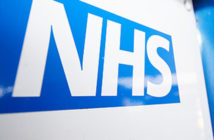If you’ve been unlucky enough to need to arrange an appointment at your local GP recently, chances are you’ve experienced the issues plaguing the healthcare sector. People all across the UK are having real difficulty in seeing a GP, with a survey of GPs finding that over 70% thought accessing NHS care in the last 12 months was becoming more difficult.
But why is it getting tougher to get a GP appointment? What are the factors negatively impacting healthcare accessibility in the UK? And is the government or NHS doing anything to remedy the problems?
Pre-Covid pressures
In the run up to the Covid-19 pandemic, the health service was already affected by a range of pressures. According to a report from the British Medical Association, in the decade before the pandemic, NHS investment was well below other comparable healthcare systems, the service was experiencing staffing shortages, and the capacity of the service itself was reeling due to a lack of beds and missed targets.
The effects of Covid-19
The pandemic had a big effect on the medical profession as large swatches of healthcare and staffing resources were diverted away from everyday care to coronavirus care. A flagging service was put under even more pressure, creating a more substantial patient backlog.
Too much demand and not enough GPs
Demand has remained high after the pandemic and the population has grown too. However, the number of GPs has not kept up with either pressure. In fact, the number of GPs dropped between 2021 and 2022, leading to forecasts that over a quarter of all positions will be vacant in 2030-31. As a result, many people are turning to private online medical practitioners to guarantee being seen quickly, even if this costs them money.
Long waiting lists see patients returning
Due to there being over 400,000 patients waiting over a year for surgeries, they are having to visit their GPs more often. This is because their illnesses are still causing them pain, discomfort, and other maladies, however, to get a prescription, many must still see their GPs.
How the NHS is dealing with the patient backlog
A solution to the problems affecting the NHS is yet to be seen, and the answer is likely to be comprised of a mixture of new hires, increased investment, a joined-up approach with elderly social care, and increased healthy living amongst the public. There are some positive signs, such as the number of patients waiting 18 months or more, which has been reduced significantly since September 2021.
What do you think the answer is to the problems with the NHS? Let us know your thoughts in the comments section below.




